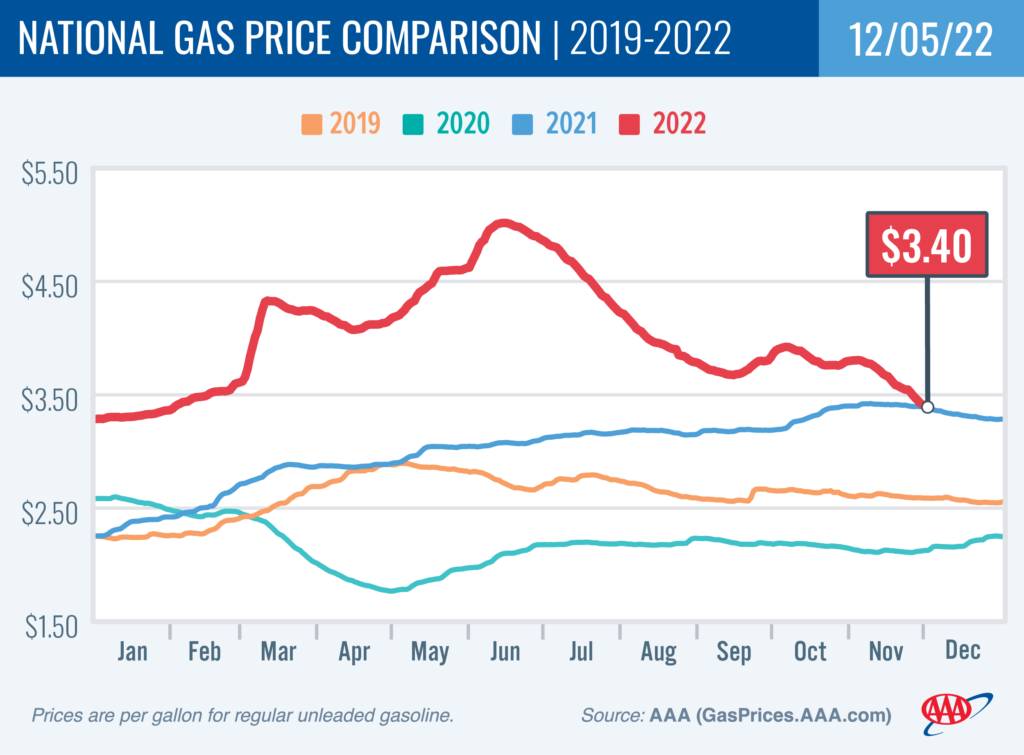INDIANAPOLIS — Many areas in the country are seeing gas prices at or below what they saw this time last year. However, a decision by some powerful figures may impact the falling gas prices.
GasBuddy says the nation’s average gas prices have fallen for the fourth straight week. As of the time of their report, the national average is down 43 cents from the previous month and is only 1.5 cents per gallon higher than a year ago.

“Every state has again seen average gasoline prices drop in the last week, and it remains very possible the national average could fall under $3 per gallon by Christmas,” said Patrick De Haan, head of petroleum analysis at GasBuddy. There has also been a drop in diesel prices, which this week will fall back under $5 per gallon, and could soon thereafter fall to their lowest level since March.”
AAA says Indiana saw among the nation’s 10 largest weekly decreases, falling 22 cents. As of December 10, the average gas price in Indiana was $3.429. The highest gas prices were in Bloomington at $3.80 while the cheapest gas prices were in Evansville at $3.116.
Despite the good news about falling gas prices, analysts are concerned as the price cap on Russian oil kicks in. The Associated Press reports that the European Union is banning most Russian oil and the Group of Seven democracies has imposed a price cap of $60 per barrel on Russian exports to other countries.
The AAA also reports that the steep plunge may be affected by results of Sunday’s meeting of OPEC+. This group of 23 oil-producing nations, including Saudi Arabia and Russia, decided to maintain output cuts of 2 million barrels per day, about 2% of world demand.
“With oil being the main ingredient in gasoline, OPEC+’s move could slow this decline,” said Andrew Gross, AAA spokesperson. “However, the gas price will likely soon be lower than it was a year ago.”
AAA reports the purpose of the move is to boost the global price of oil. The Associated Press reports oil has been trading at lower prices on fears that coronavirus outbreaks and China’s strict zero-COVID restrictions would reduce demand for fuel in one of the world’s major economies. Concerns about recessions in the U.S. and Europe also raise the prospect of lower demand for gasoline and other fuel made from crude.
The OPEC+ statement set its next meeting for June 4 but said the coalition could meet at any time to address market developments.











